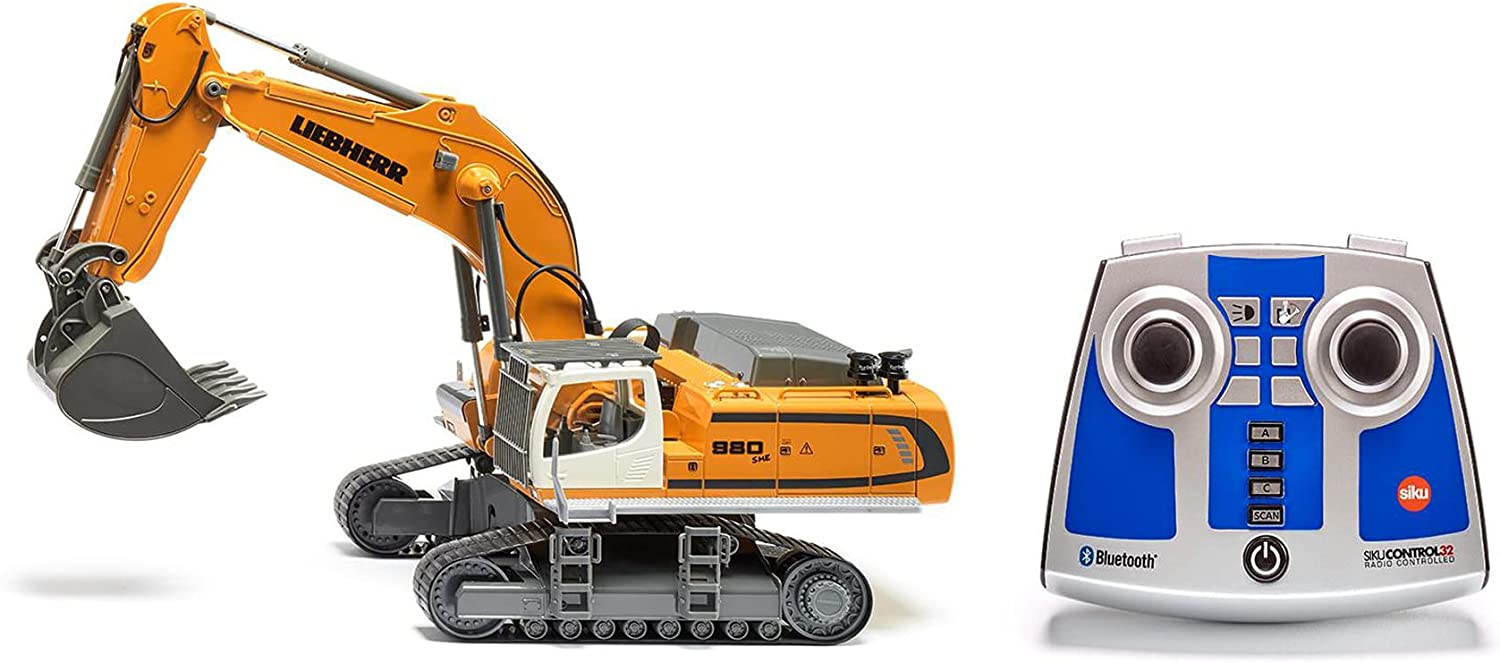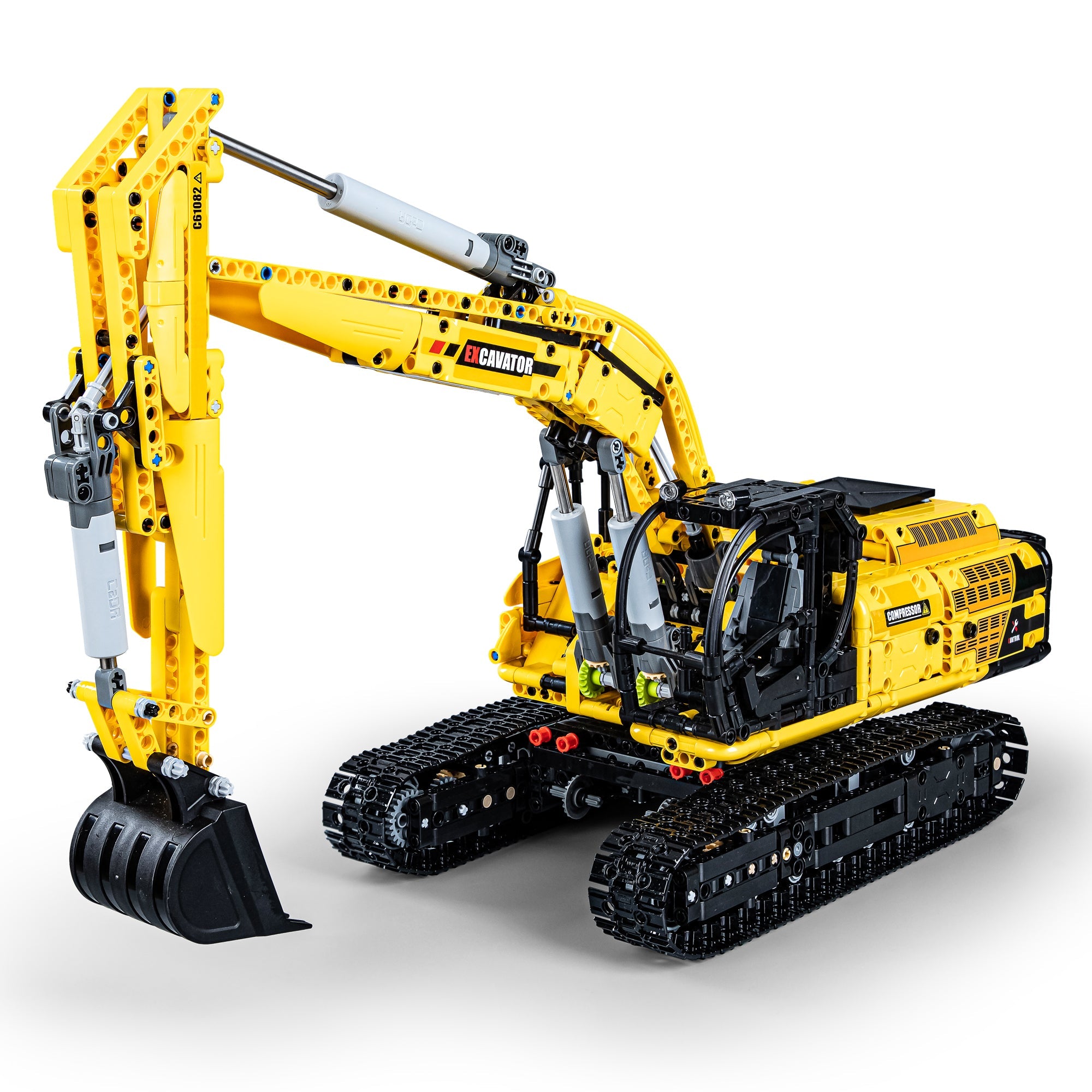Recognizing Exactly How Excavator Functions and Its Effect On Performance
Excavators play a crucial duty in building and construction and mining procedures, relying upon a complex interaction of mechanical and hydraulic systems. Their ability to execute a variety of jobs hinges on both their layout and the technology integrated within. Comprehending these components can substantially influence operational effectiveness and performance. As developments remain to improve the industry, one should consider how these adjustments will certainly influence future methods and performance.
The Fundamentals of Excavator Mechanics

The Duty of Hydraulic Equipments in Excavators
At the heart of excavator procedure lies the hydraulic system, which plays a critical function in powering the equipment's activities and functions. This system makes use of pressurized hydraulic liquid to move energy, allowing numerous actions such as digging, swinging, and training. By harnessing the principles of hydraulics, excavators can perform tasks with remarkable precision and pressure, improving general operational efficiency.The hydraulic system consists of vital parts, consisting of valves, cyndrical tubes, and pumps, which function together to regulate the circulation and instructions of the fluid. When the driver involves the controls, the hydraulic fluid is directed to certain cylinders, translating the driver's commands into physical movement. This device permits receptive and smooth activities, which are essential in building and construction and excavation atmospheres. double e volvo rc excavator. The performance of the hydraulic system directly impacts the efficiency and adaptability of the excavator, making it an essential element in modern excavation procedures
Secret Components of an Excavator
Comprehending the key components of an excavator is crucial for realizing how this powerful equipment operates. An excavator consists of several substantial elements, consisting of the undercarriage, residence, boom, arm, and pail. The undercarriage offers security and wheelchair, frequently featuring tracks or wheels to browse numerous terrains. Your house contains the engine and hydraulic systems, enabling the operator to regulate activity and power the device. The boom extends from the residence, making it possible for vertical reach, while the arm connects to the container, assisting in excavating and lifting operations.Additionally, the cab houses the driver, outfitted with controls for precise maneuvering. Each of these elements plays a crucial function in the excavator's total performance, adding to its performance and performance on building sites. Comprehending these parts helps in maintaining and enhancing excavator efficiency, ensuring tasks are finished safely and effectively.
Add-on Versatility and Its Benefits
Accessory flexibility is an important element of excavators, making it possible for drivers to switch over between various devices tailored for specific jobs. This adaptability not only enhances job effectiveness however likewise adds to cost-effectiveness by lowering the requirement for numerous machines. Recognizing the various sorts of attachments readily available can significantly impact the general performance and capability of an excavator on task sites.
Kinds of Add-ons
While excavators are mostly identified for their excavating capacities, their true flexibility depends on the vast range of attachments available. These accessories boost the excavator's performance, permitting it to carry out different tasks beyond excavation. Usual add-ons consist of pails (for excavating and scooping), hydraulic thumbs (for understanding materials), and augers (for piercing holes) Grapples are made use of for moving and managing particles, while rippers can break up difficult surfaces. Other specialized attachments, such as plates and rakes, enable excavators to adjust to certain job requirements. This variety not only boosts the device's energy across various fields, consisting of demolition, building and construction, and landscaping, yet additionally permits operators to tailor their devices to meet specific task needs effectively.
Increased Task Performance
Making best use of task efficiency is a primary benefit of making use of various excavator accessories. Different accessories enable an excavator to do numerous tasks without needing to change tools, conserving useful time and labor. For example, making use of a hydraulic hammer can damage concrete while a bucket accessory can dig deep into dirt, making it possible for a seamless workflow. This adaptability minimizes downtime related to equipment adjustments and boosts performance on-site. Furthermore, specialized attachments enhance precision in tasks such as grading or landscape design, causing better results. The ability to adapt to different task needs not just streamlines procedures however also reduces the requirement for extra machinery, making certain that tasks are finished swiftly and properly. Overall, attachment convenience significantly adds to raised job efficiency in excavation job.
Cost-Effectiveness and Flexibility
Cost-effectiveness is a significant benefit of using functional excavator add-ons. These accessories allow a solitary excavator to do numerous jobs, reducing the requirement for additional equipment and labor - double e volvo rc excavator. By switching over between containers, hammers, and grapples, operators can deal with various projects, from excavating to demolition, thereby making the have a peek at this website most of tools utilization. This flexibility not only lowers functional prices yet likewise reduces downtime connected with transforming devices. Additionally, the capacity to personalize excavators with specialized add-ons improves efficiency, as they can effectively handle varied tasks according to project demands. To wrap up, the mix of cost-effectiveness and adaptability in excavator accessories adds to improved functional effectiveness and resource appropriation in building and excavation tasks

Advanced Modern Technology in Modern Excavators
Modern excavators are significantly equipped with innovative modern technology that changes excavation procedures. Automation simplifies operations, while improved fuel efficiency minimizes operational expenses. Furthermore, wise control systems improve precision and safety and security, marking a substantial advancement in excavation devices.
Automation in Excavation Processes
As excavation modern technology advances, automation has actually arised as an important part in enhancing performance and precision on task websites. Modern excavators are geared up with innovative automated systems that help with tasks such as grading, excavating, and trenching with minimal driver intervention. These systems make use of sensors, GPS, and artificial intelligence formulas to ensure accurate placing and depth control, greatly decreasing the margin for mistake. Furthermore, automation allows drivers to concentrate on strategic decision-making instead of manual controls, leading to boosted productivity overall. Such technologies not only enhance operations but likewise enhance security by decreasing human mistake in intricate procedures. Consequently, the integration of automation in excavation procedures stands for a considerable improvement in building modern technology, driving the industry towards greater performance and performance.
Improved Fuel Performance
Improvements in innovation have also brought about substantial enhancements in gas effectiveness for modern excavators. Modern equipments are geared up with advanced engines that maximize power output while minimizing gas consumption. These engines utilize ingenious burning technologies, such as turbocharging and direct fuel injection, to boost performance and performance. Additionally, light-weight materials in building decrease overall weight, permitting much less power expense throughout procedure. The introduction of variable rate controls makes it possible for drivers to change engine efficiency according to particular jobs, further decreasing gas usage. Because of this, these enhancements not just lower operational expenses yet additionally contribute to environmental sustainability by lowering exhausts. Generally, enhanced gas performance in excavators is a vital growth that bolsters productivity and economic viability in the building and construction sector.
Smart Control Solution
While operators navigate increasingly intricate job sites, smart control systems in excavators have become necessary devices for improving efficiency and accuracy. These sophisticated innovations make use of sensors and formulas to keep track of numerous criteria such as lots weight, surface conditions, and operational performance. By immediately readjusting hydraulic features, smart systems optimize maker efficiency, leading to boosted performance and minimized endure parts. In addition, drivers gain from user-friendly interfaces that offer real-time responses and diagnostics, enabling notified decision-making. This integration of modern technology not just improves operations but likewise minimizes human error, adding to much safer workplace. As the building industry remains to develop, clever control systems will play an important function in forming the future of excavator performance and performance.
Enhancing Functional Efficiency With Excavators
Excavators play a necessary role in improving operational efficiency throughout different building and construction and excavation tasks. Their versatility enables numerous jobs, consisting of digging, training, and material handling, which enhances process and reduces the need for extra tools. With powerful hydraulic systems, excavators can carry out heavy-duty tasks with precision, considerably reducing the moment needed to total jobs. The combination of advanced technology, such as general practitioner and automated controls, better enhances their operation, allowing operators to achieve better precision and minimize material waste. Additionally, modern-day excavators are created to take in less fuel and reduce exhausts, adding to both expense financial savings and ecological sustainability. By using excavators efficiently, building and construction groups can enhance productivity, meet job deadlines, and enhance overall site administration. This multifunctionality and efficiency make excavators crucial devices in the modern construction landscape.
The Future of Excavators in Construction and Mining Industries
As the construction and mining industries develop, the future of excavators is positioned for significant improvement driven by technological innovation and altering functional needs. Developments in automation and synthetic knowledge are reshaping excavator abilities, permitting enhanced precision and efficiency in operations. Self-governing excavators are emerging, reducing the need for human treatment and decreasing the risk of accidents.Moreover, the combination of telematics and IoT modern technology enables real-time tracking of machine performance and predictive maintenance, maximizing uptime. Environmentally friendly styles, including electrical and hybrid models, are acquiring grip, straightening with sustainability goals within the industry.Additionally, the use of innovative materials and lighter layouts enhances gas efficiency while keeping performance requirements. As these trends development, excavators will certainly play a vital role in fulfilling the boosting needs for efficiency and security in construction and mining, inevitably transforming functional landscapes.
Frequently Asked Questions
Exactly How Do Climate Condition Affect Excavator Efficiency?

Weather considerably influence excavator performance, as rainfall and mud can recommended you read impede traction and security, while extreme temperature levels might affect hydraulic systems. Operators needs to adapt to these variables to guarantee optimal functionality and safety during procedures.
What Precaution Should Operators Adhere To While Using Excavators?
Safety and security procedures for excavator drivers consist of wearing suitable personal safety tools, conducting pre-operation examinations, making certain proper interaction with ground workers, maintaining a risk-free range from overhanging dangers, and adhering to recognized functional methods to stop mishaps.
Just How Often Should Excavators Be Kept for Optimal Efficiency?
Excavators ought to be maintained frequently to guarantee peak efficiency, commonly every 250 operating hours or as defined by the supplier. Regular checks enhance dependability, prevent unforeseen failures, and expand the life-span of the tools.
What Is the Ordinary Life Expectancy of an Excavator?
The typical life expectancy of an excavator typically varies from 10,000 to 15,000 hours of operation. Aspects influencing longevity include maintenance practices, operating conditions, and the high quality of the equipment itself, influencing overall productivity and performance.

Can Excavators Operate Uneven Surface Successfully?
Excavators can run successfully on uneven surface as a result of their expressed styles and adjustable tracks. These features permit them to maintain stability and traction, enabling effective procedure in tough settings commonly experienced in building and landscaping tasks. Each of these components plays a crucial function in the excavator's overall performance, adding to its effectiveness and performance on building sites. Optimizing task performance is a primary benefit of making use of different excavator accessories. While click for info operators navigate increasingly complex task websites, smart control systems in excavators have emerged as crucial tools for boosting performance and accuracy. Excavators play a vital duty in boosting operational performance throughout numerous building and excavation jobs. Advances in automation and man-made knowledge are improving excavator capabilities, enabling for improved accuracy and effectiveness in operations.